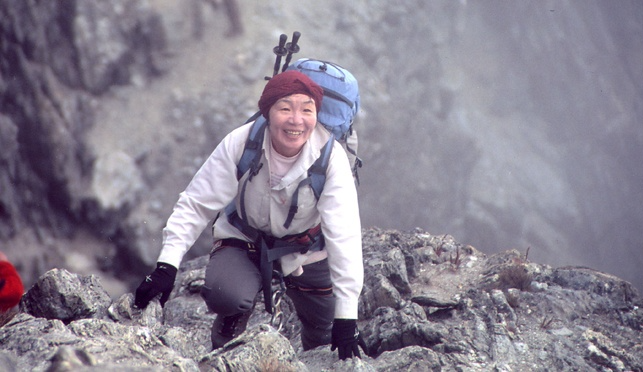 TRENDING
TRENDING
The Untold Story of Junko Tabei: The First Woman to Summit Mount Everest 50 Years Ago
Fifty years ago, Japanese climber Junko Tabei became the first woman to summit Mount Everest, breaking barriers in a male-dominated sport. Her story, filled with courage and perseverance, continues to inspire generations of women mountaineers around the world
Mount Everest Exactly fifty years ago, on May 16, 1975, Junko Tabei from Japan became the first woman to reach the summit of Mount Everest, marking a historic milestone in women’s mountaineering. Despite being buried in an avalanche days before her summit attempt, Tabei’s determination and resilience helped her achieve what many thought impossible.
The Japanese Women’s Everest Expedition, which took five years to organize, faced numerous challenges — from skepticism within Japan’s male-dominated climbing community to financial barriers. When disaster struck at Camp II (6,300 meters), Tabei was trapped under heavy snow. Rescued by Sherpas and suffering from injuries, she refused to abandon her climb, famously saying:
> “There was no way I was leaving the mountain.”
On May 16, 1975, with sheer willpower, she became the first woman and 40th person ever to reach Everest’s peak. Her climb not only symbolized human endurance but also challenged deep-rooted gender stereotypes in adventure sports.
Meanwhile, a Chinese women’s expedition led by Pan Duo — known as “Mrs. Phanthog” — was also attempting to make history on the Tibetan side. Eleven days later, Pan Duo became the second woman to summit Everest, the first from the northern route, showing that women across Asia were rising together in the world of mountaineering.
Despite her groundbreaking achievement, Tabei’s story remained largely unknown in the West, overshadowed by male adventurers like Sir Edmund Hillary and Reinhold Messner. Yet, her impact on women’s empowerment in Japan and globally has been profound.
Tabei went on to become the first woman to complete the Seven Summits, climbing the highest peaks on all seven continents. She also dedicated her life to environmental activism, leading cleanup expeditions on Everest and advocating for sustainable mountaineering practices.
> “I tried to picture myself as a traditional Japanese wife who followed her husband. The idea never sat well with me,” she once said — reflecting her lifelong rebellion against societal expectations.
Her honesty and leadership opened doors for future generations of women climbers, including modern pioneers like Dawa Yangzum Sherpa and Shailee Basnet, who continue her legacy.
Today, Tabei’s name stands as a beacon for equality, courage, and environmental responsibility in high-altitude mountaineering. Yet, her 50th anniversary serves as a reminder of how many women’s stories still remain untold.
> “A person must be able to voice her opinion without worrying about criticism,” Tabei once wrote — words that still echo across the world’s highest peaks.
Weather Update: Clear skies with snow accumulation at higher altitudes
Peak Altitude: 8848 m
Risk Level: High (avalanche-prone zones and extreme altitude c
Expedition Info: 1975 Japanese Women’s Everest Expedition, led by Junko Tabei